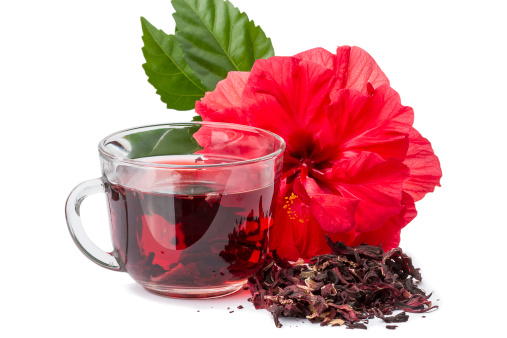Hibiscus teas are a caffeine free herbal tea made from the flowers on the Hibiscus sabdariffa or “Roselle” plant. The tea is made from the sepals or calyces (the petal-like structure on the base of an flower), instead of outside the actual petals. Hibiscus teas are a trendy beverage in most countries from Asia through Africa to your Caribbean, and various countries their very own unique methods for preparing the drink.
In most areas, including areas of China, hibiscus is mixed with black tea. Although not as well-known from the U.S., hibiscus is a very common ingredient in teas. Hibiscus imparts a tangy flavor as well as a deep purplish-red color to blends that this is a part.
Health advantages of Hibiscus and Hibiscus Tea:
The regular reasons like hibiscus add some management of elevated blood pressure (hypertension), the cut in fever, and management of liver disorders. Unlike many herbs, hibiscus has become studied fairly extensively and you will find even some fairly conclusive human studies establishing not merely its usefulness for assorted treatments, but comparing it to widely-used medications and exploring side-effects. Although almost all of the studies use standardized extracts of hibiscus, hibiscus tea continues to be studied rather and shows promise how the tea itself they can be handy being a treatment now and again.
Lowering blood pressure levels – Over numerous animal studies supporting its use for hypertension, human studies have validated that hibiscus, including hibiscus tea can effectively lower blood pressure level. Hibiscus sabdariffa extract is than the drug captopril, and was found to be equally effective. A more modern study compared it to lisinopril observed rrt had been less effective than that drug, but showed an absence of intense unwanted side effects.
Lowering fever – Hibiscus has been shown in laboratory animals to own fever lowering (antipyretic) properties. There is evidence suggesting the reason is mechanism of action differs from that relating to aspirin, which lowers fever.

Protecting the Liver – The consequences of different chemicals about the liver less complicated more complex and poorly understood, however, there is nonetheless some evidence that hibiscus can safeguard against liver damage caused by a few different chemicals
Safety and Side Effects:
Hibiscus tea is trusted to be a beverage and often recognized as safe for normal use. Moreover, the few human clinical studies that contain explored side effects are finding an apparent scarcity of strong side effects. However, as with any medicine, caution must be warranted using its use. The acidity of teas containing hibiscus could make them unpleasant for many to consume, and individuals experiencing heartburn or else looking to avoid sour or acidic refreshments may want to cure it. Also, as it is often seen to lower blood pressure level and consideration to become an ACE inhibitor it should be combined with caution by people who currently have low hypertension.
Buying Hibiscus Tea:
Hibiscus tea is widely available by using a variety of trusted online retailers. It is usually sold under the name Roselle tea. In addition to pure hibiscus teas, it is frequently blended with other teas, and there are a large number of herbal blends where it is either the main ingredient or one from the primary ones.
Check out about hibiscus tea reviews site: <a href="http:// hibiscusteasite.com /”>visit site.

Be First to Comment